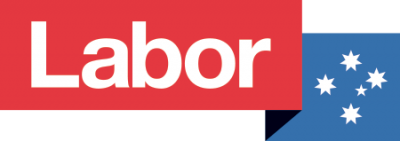Leakers Down Under: The Australian Federal Police Raids during Election Campaign

It is election time in Australia, and the electioneering took a remarkable turn Thursday night with announcements that the Australian Federal Police had raided the offices of the opposition Australian Labor Party, including that of a senior frontbencher and former communications minister, Senator Stephen Conroy. The moment news of the event started hitting air and radio waves, Australians were waking up to unusual scenes. Police had been effectively deployed to target the main opposition party in the country. The reasons given centred on claims made, dating back to December, about media leaks on the highly flawed National Broadband Network. The referral had stemmed from the company behind the bungled project, NBN Co.
NBN Co, in turn, agreed “under duress” to destroy photographs, numbering in the order of 34 or 35, taken by one of its employees during the police raids, under parliamentary privilege grounds cited by the ALP.
The company has been busy attempting to manufacture an image of soundness in its management over an area of expertise it has demonstrated little in. When things are bad, any slight improvement is bound to look good. “NBN,” came a company statement, “has a proven track record and has, over the last two years, met or exceeded its key targets as set by the board.”
What the raids started looking like in the second week of an election campaign was an affront to whistleblowers and, more broadly, the idea of holding a corrupt scheme to account. Australian internet speed remains hideously slow relative to other countries. A good share of developing countries trump antipodean performances in that regard. In January 2015, the State of the Internet Report from Akamai, a cloud service provider, ranked Australia 44th among countries for its average internet speed.[1]
The report also took note that Australia’s performance in that regard had actually worsened, a decision occasioned by a switch from fibre-to-the-home forms to a mixed fibre/copper network. Using a copper-based access network was always going to be a problem.
In December, The Australian reported on the miserable state of the copper network purchased from Telstra, while Fairfax Media reported about the impoverished nature of broadband infrastructure purchased by the NBN Co from Optus. Both reports had issued from leaked sources, with one internal report going into some depth about spiralling costs and increasing delays.
This brings us back to the issue of disclosing the state of mismanagement within the NBN program. The timing seems smelly – not only during an election, but in the dead of the night. Australia finds itself in an electoral campaign; the opposition is doing rather well in the polls, and the government has been all too enthusiastic with denying interference. Reading between the poorly scripted lines, and we find ourselves with a federal police force co-opted into dirty tasks.
The AFP Commissioner, Andrew Colvin, has dismissed ideas of political influence from the start. The timing was purely coincidental, with the search warrant executed purely as a matter of how far the investigation into the leaks had gone.
The ALP, having initially thumbed its finger at the potentially compromised nature of the police operation, has decided to focus on government tactics. This angle ignores the substance about the leaks and, instead, focuses on other factors: government agenda, motivation and so forth. Citing parliamentary privilege has its own tactical value, limiting scrutiny of the documents by placing them under seal until the election is concluded. The upshot here is that neither side of politics is interested in seeing the dirty laundry.
The broader subject here remains how the very act of leaking is treated. Australia is not merely a land with poor internet speed; it is a country where cases of leaking will be investigated with a degree of unhealthy enthusiasm. Between 2005 and 2011, 48 investigations into political leaks were conducted. Of those, a good bulk of them, 32, came from an overly anxious, and vulnerable Rudd government.
What such leaks reveal, even in the broader public interest, is less relevant than the fact of its taking place. On that score, both the opposition Labor party, and conservative agree, while the current Prime Minister, Malcolm Turnbull, merely sees them as ceremonial efforts that “reveal little”.
“When the opposition and the media work together to publicly reveal infrastructure mismanagement,” argued Julian Assange in a statement released soon after the raids, “they are doing their jobs and doing it well. When police conduct raids on the opposition during an election to hunt down media sources they are not only not doing their job – they’re stopping all the rest of us from doing ours.”[2]
Dr. Binoy Kampmark was a Commonwealth Scholar at Selwyn College, Cambridge. He lectures at RMIT University, Melbourne. Email: [email protected]
Notes
[1] https://www.documentcloud.org/documents/1452782-akamais-state-of-the-internet-report.html
[2] http://www.twitlonger.com/show/n_1somvki

